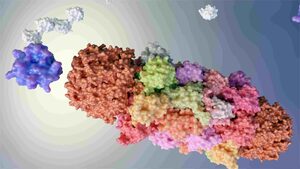Enhancing Efficacy: Unraveling the Potential of Adjuvants in mRNA Vaccines
Cuerpo
While mRNA vaccines have shown remarkable efficacy in clinical trials and real-world use, researchers are constantly looking for ways to enhance their effectiveness and duration of protection. One key area of interest is the use of adjuvants in mRNA vaccines.
Adjuvants are substances that are added to vaccines to enhance the body's immune response to the antigen (the protein that triggers an immune response). Adjuvants work by stimulating the innate immune system, which can lead to a stronger and longer-lasting immune response. In the case of mRNA vaccines, adjuvants can help boost the immune response to the protein produced by the mRNA, leading to better protection against the virus.
One potential application of adjuvants in mRNA vaccines is to help overcome some of the limitations of the technology. For example, mRNA vaccines can be less immunogenic than traditional vaccines, meaning they may not stimulate as strong of an immune response. By adding adjuvants to mRNA vaccines, researchers can potentially increase the vaccine's effectiveness and improve the immune response in recipients.
Additionally, adjuvants can also help improve the stability and delivery of mRNA vaccines. One of the challenges of mRNA vaccines is their fragility and susceptibility to degradation, which can limit their effectiveness. By incorporating adjuvants that help stabilize the mRNA or enhance its delivery to cells, researchers can improve the overall efficacy of the vaccine.
Furthermore, adjuvants can also play a crucial role in enhancing the immune response in certain populations, such as older adults or immunocompromised individuals, who may have weakened immune systems and may not mount as strong of a response to the vaccine. By using adjuvants that stimulate the innate immune system, researchers can potentially improve the vaccine's efficacy in these populations and provide better protection against the virus.
There are several different types of adjuvants that can be used in mRNA vaccines, each with its own unique mechanism of action. Some adjuvants work by activating specific receptors on immune cells, while others enhance the presentation of the antigen to the immune system. Researchers are currently exploring a variety of adjuvants to determine which ones are most effective in enhancing the immune response to mRNA vaccines.
One example of an adjuvant that has shown promise in mRNA vaccines is aluminum salts, which have been used in traditional vaccines for decades. Aluminum salts work by forming a depot at the injection site, slowly releasing the antigen and stimulating the immune system over a longer period of time. Studies have shown that incorporating aluminum salts into mRNA vaccines can enhance the immune response and increase the production of antibodies.
In conclusion, the use of adjuvants in mRNA vaccines holds great promise for improving the effectiveness and durability of these groundbreaking vaccines. By enhancing the immune response, improving stability and delivery, and targeting specific populations, adjuvants can help maximize the potential of mRNA vaccines in the fight against infectious diseases. As researchers continue to explore the applications of adjuvants in mRNA vaccines, we can expect to see even greater advancements in vaccine technology and public health.













Comentarios